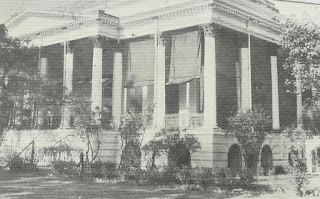 |
| Bethune women's College, Kolkata (Calcatta), Wikipedia |
 |
| John Elliot Drinkwater Bethune (1801-1851)/en.wikipedia.org |
The college started in 1879 with one student, one Kadambini Bose. In 1883 there was another girl, she was a native Christian girl from Dehradun. Both of them successfully completed the degree course of the university of Calcutta. In 1887-88 batch, there were 11 girls on roll, one being in the MA class. In February 1888, Bethune College received affiliation to the University of Calcutta up to the BA standard; Chandramukhi Basu who had already completed her MA with Honours in English, became its first Principal.
The women's college began to progress well and by 1914-15, there 72 students and by 1925-26, the number of students went up to 151. By next decade, the progress of the women's college was unstoppable and the studentship reached 260. The freedom struggle that saw many civil disturbances and strikes and world War II in the early 1940s had interfered in the functioning of the school. After independence in August, 1947 the studentship showed upward mobility by 1849, and to cope with the demand and rise of students, the college introduced several subjects in the degree courses. The note-worthy feature was the college had excellent, dedicated faculty members. From the very inception, Bethune College made a mark in producing notable students and stood almost on par with the presidency college, Kolkata.
Many outstanding women, including many Muslim women graduated from this college made a mark in their respective fields of studies. Some among the old students were pioneers in the cause of education and liberation of women.
https://en.wikipedia.org/wiki/Bethune_College
http://en.banglapedia.org/index.php?title=Bethune_College








.webp)
